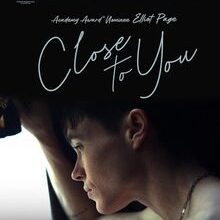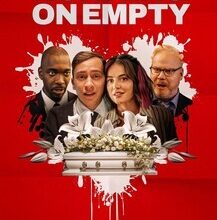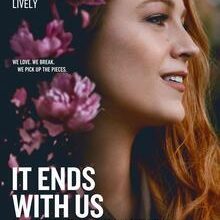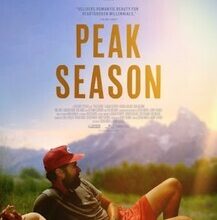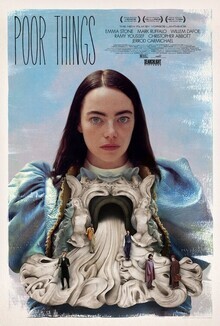
Poor Things
Poor Things
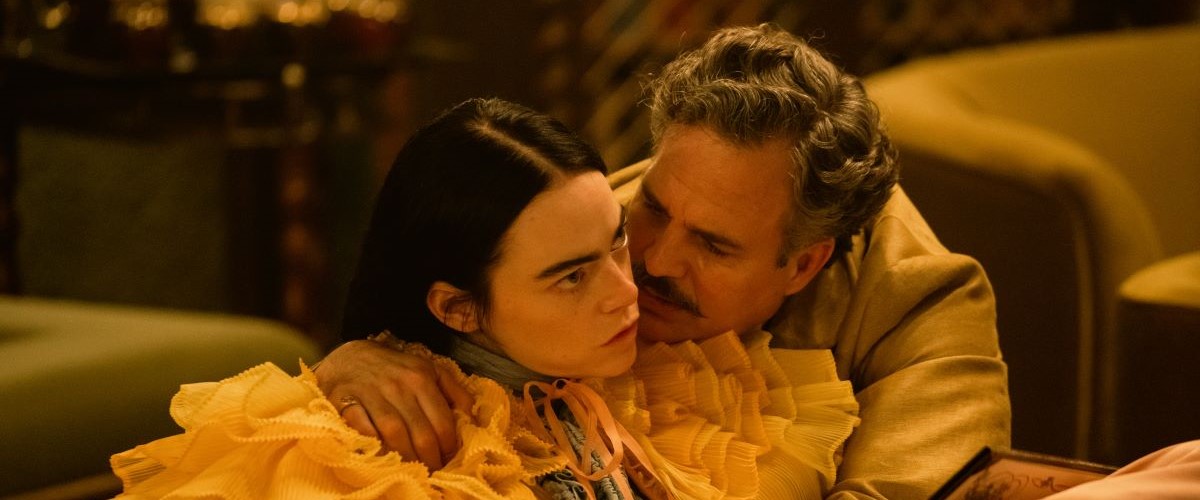
Now streaming on:
JustWatch
Yorgos Lanthimos seems delighted in depicting extreme behavior within pristine settings, whether it’s the quiet suburbia of “Dogtooth” or the clinical lab of “The Lobster” or the opulent grandeur of “The Favourite.” That glaring contrast between the expectations of decorum and the messy truth of humanity seems to fascinate him endlessly.
Nowhere is this conflict more exaggerated and entertaining than in his latest film, and his best yet, “Poor Things.” Everything here is wonderfully bizarre, from the performances and dialogue to the production and costume design. And yet at its core, as is so often the case in the Greek auteur’s movies, “Poor Things” is about the awkwardness of forging a real human connection. We want to know each other and make ourselves known. The figure at the film’s center, Bella Baxter, seeks to achieve enlightenment, become her truest self, and establish enriching relationships with people who genuinely love her and don’t just want to control her. The nuts and bolts of this story may sound familiar: A young woman embarks on an odyssey of exploration and finds her identity was within her all along. The execution, however, is constantly astonishing.
It’s Victorian London, and Emma Stone’s Bella lives in a tasteful townhouse with the mad scientist who also serves as her father figure. As Dr. Godwin Baxter, Willem Dafoe offers a gentle presence beneath his scarred visage. Bella is a grown woman but behaves like a toddler at first, grunting out words and throwing plates and dancing gleefully around stiff-legged. She calls him God, and that’s actually not hyperbole. We will learn the backstory behind all of this in time, and I wouldn’t dream of giving any of it away here.
Godwin is one of several men who try to mold Bella over the course of her development; one of his students, Max McCandles (Ramy Youssef), is another. Max moves in with the intention of assisting Godwin in his research but ends up falling in love with Bella and asking her to marry him, and Youssef brings an element of warmth and reason to this otherwise mad world. But he’s no match for Mark Ruffalo, an obvious cad with the very proper name of Duncan Wedderburn, who whisks her away on a lavish world tour. This consists mostly of vigorous sex in a variety of positions—which Bella calls “furious jumping” in her rapidly maturing mind—and it’s a key element to both her independence and the film’s brash humor.
Reuniting with Lanthimos after “The Favourite,” Stone gives the performance of a lifetime in a role that has a staggering degree of difficulty. This could have gone horribly wrong; instead, what she’s doing is wildly alive and unpredictable in ways large and small. Watching her start out big and broad and fine tune the character little by little, physically and verbally, as Bella evolves is a wonder to behold. She’s doing such technically precise comedic work here, especially during the character’s childlike origins, but eventually she’s captivating when she’s fully in command as a sexually liberated woman. Enormously likable, she quickly wins us over to her side even when she’s being an impudent brat, and she keeps us rooting for her in the face of increasing patriarchal oppression.
Ruffalo, meanwhile, is hysterically funny in a way you’ve never seen him before. He’s both a charismatic Lothario and a preening buffoon. He’s also unexpectedly sexy, and, in time, amusingly pathetic. Also among the stacked supporting cast are comedian Jerrod Carmichael and German legend Hanna Schygulla as traveling companions who give Bella a boost in her quest toward self-possession. A sly bit involving a book on a cruise ship is particularly funny. The petite but powerful Kathryn Hunter, so startling recently as the Witches in Joel Coen’s “The Tragedy of Macbeth,” provides a spicy, spiky presence as a Paris madame, but even that small role includes shading you might not expect at the outset.
So much of what is pleasing about “Poor Things” comes from the specificity of the language. In adapting the novel by Alasdair Gray, Tony McNamara’s screenplay begins in intentionally disjointed and stilted fits and starts, but it has a rhythmic poetry about it. The dialogue becomes more florid as Bella blossoms in her intellectualism, and it’s a joy to watch Stone seize upon the complexity of her proclamations. McNamara’s writing here isn’t as deliciously mean as it was in Lanthimos’ “The Favourite,” but it bounces along with a witty bite all its own.
In creating the grandiosity of this world, Robbie Ryan’s cinematography is stunningly beautiful in varied textures and hues. “Poor Things” begins in grainy black and white when Bella is more childlike, with plenty of fish-eye lenses and peepholes to keep us off balance and urge us to lean closer. But it steadily opens up into lush, wondrous color as Bella comes into her own; the nighttime skies during the ocean voyage portion of her journey are particularly awesome. This evolution may sound obvious, but it feels like a magic trick he’s pulled off right before our eyes.
The costume design from Holly Waddington convincingly tells Bella’s story in detailed, vibrant ways. Simple white nightgowns in her girlish state give way to puffed-sleeve explosions, each more elaborate than the last. And the production design from Shona Heath and James Price—where to begin in singing their praises? From Godwin’s slightly off-kilter house to a luxurious Lisbon hotel to a cramped Paris brothel, each new setting imaginatively reinvents the kinds of historical images we might think we know, only through an outlandish prism with hints of Escher and Gaudi.
But none of these exquisite technical elements matter if we don’t care about the woman at the center of them. And we do. Bella remains kind and optimistic even as she sees the truth of the outside world, but she’s also learned enough to assert her newfound power when necessary. It’s as if “Barbie” were actually about Weird Barbie, but even that idea doesn’t quite do it justice. A more apt description is: It’s the best movie of the year.

Christy Lemire
Christy Lemire is a longtime film critic who has written for RogerEbert.com since 2013. Before that, she was the film critic for The Associated Press for nearly 15 years and co-hosted the public television series “Ebert Presents At the Movies” opposite Ignatiy Vishnevetsky, with Roger Ebert serving as managing editor. Read her answers to our Movie Love Questionnaire here.
Now playing
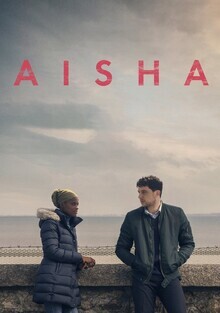
Aisha
Christy Lemire

Poolman
Matt Zoller Seitz
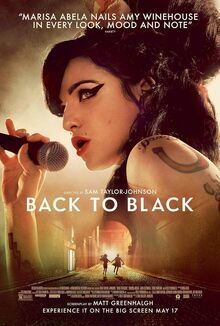
Back to Black
Peyton Robinson
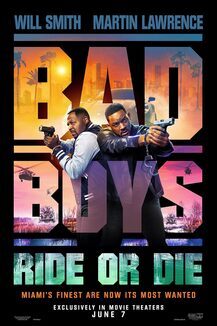
Bad Boys: Ride or Die
Brian Tallerico
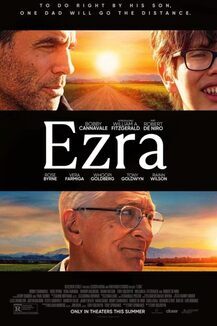
Ezra
Sheila O’Malley

The Garfield Movie
Nell Minow
Film Credits
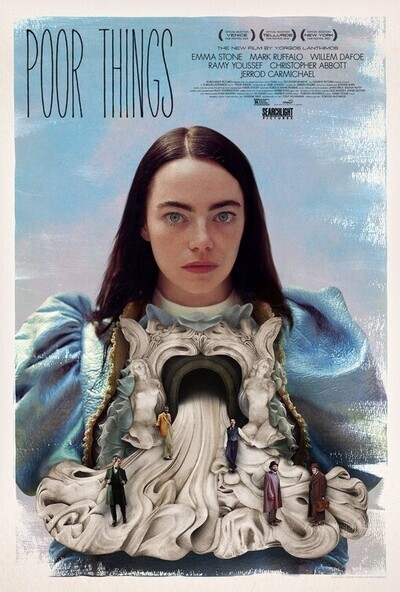
Poor Things (2023)
141 minutes
Cast
Emma Stoneas Bella Baxter
Mark Ruffaloas Duncan Wedderburn
Willem Dafoeas Godwin Baxter
Ramy Youssefas Max McCandless
Jerrod Carmichaelas Harry Astley
Christopher Abbottas Alfie Blessington
Margaret Qualleyas Felicity
Suzy Bembaas Toinette
Kathryn Hunteras Swiney
Hanna Schygullaas Martha Von Kurtzroc
Director
- Yorgos Lanthimos
Screenplay
- Tony McNamara
Director of Photography
- Robbie Ryan
Editor
- Yorgos Mavropsaridis
Latest blog posts
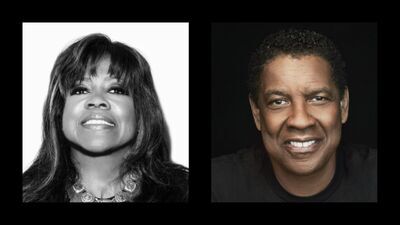
The 2024 American Black Film Festival Announces Retrospective: Celebrating The Legacy Of Denzel Washington: Moderated by Chaz Ebert

Tribeca Film Festival 2024: 8 Highlights from This Year’s Event
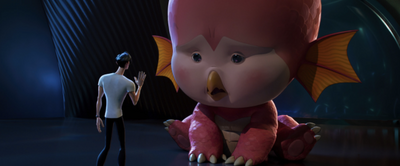
It’s Too Bad That Audience Pictures Like Ultraman: Rising Will Barely Be Seen in Theaters
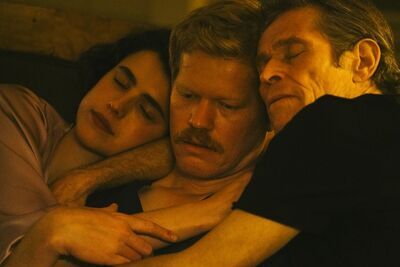
Jesse Plemons on Being Funny, Stepping Off the Ledge and Making ‘Kinds of Kindness’
Comments
comments powered by Disqus
